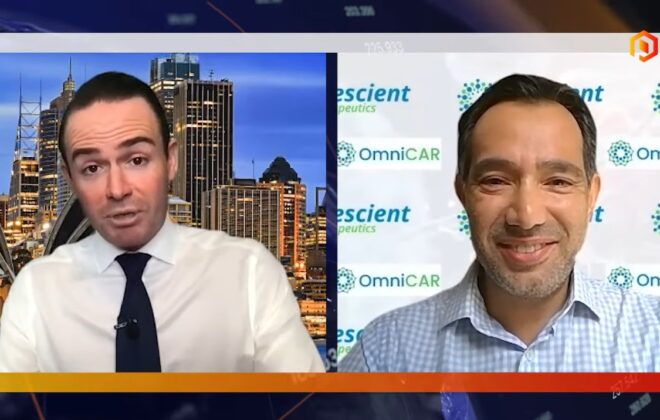Q&A with Dr Rebecca Lim – Cell & Gene Therapy World Asia Conference 2021
Dr Rebecca Lim, Director of Scientific Affairs at Prescient Therapeutics (ASX: PTX), presented at the fifth annual Cell & Gene Therapy World Asia Conference 2021 last week.
Watch the presentation below.
We sat down with Dr Lim to find out more about the conference:
What were some of the major themes at the Cell & Gene Therapy World Asia Conference 2021?
This was the World Asia conference on cell and gene therapy so it was unsurprising that the focus was both on the development of new cell and/or gene therapies therapies, such as Prescient with OmniCAR.
There was equal focus on those developing new methods and devices to enable the cell and gene therapy sector.
Challenges in the field?
Technical challenges remain such as the manufacturing and quality control of a ‘living drug’. This is where many companies struggle – they underestimate the level of knowledge and time needed for process development. The field is also reliant on specialised raw materials where supply chains are affected by the pandemic. Ultimately, the question on the top of everyone’s mind in the field is, “How do I develop a product that does what it says on the label, and have it perform every single time?”
Emerging trends in the field?
One of the most obvious trends was an increase in the number of companies working on solutions for manufacturing. From the gene editing aspect, all the way down to the physical washing and concentration of cells ready for patient use. This was very pleasing to see – it’s always better for the patient AND for biotech to use what delivers the best results rather than be stuck using whatever we can access. This is one rising tide that is certain to raise all boats.
What did you present?
I presented on OmniCAR and I had a bit of a tongue-in-cheek title of “Making CAR-T druggable” because this has been the thorn in the side of CAR-T therapy. After the treatment is infused, there isn’t very much that the physicians can do in terms of the magnitude of CAR-T response. This can mean anything from insufficient tumour clearance to loss of life. Remember that the current standard of care for CAR-T is to have the patient in ICU during the treatment and manage the adverse events as they arise. So I felt very fortunate to be able to inform the audience that there is an alternative to this, where Prescient’s OmniCAR could achieve the cytotoxicity of CAR-T while placing dose control back into the hands of the clinicians.
What common questions were you asked?
The audience asked me about how the clinical treatment would look like, and whether or not we were looking into an allogeneic cell therapy (which we are, eventually). Interestingly enough, someone also asked if we were keen to partner with an Asian company.
Related Posts
RECENT POSTS
Categories
- Article (106)
- Media (13)
- News (305)
- Uncategorized (1)
- Webcast Video (7)




